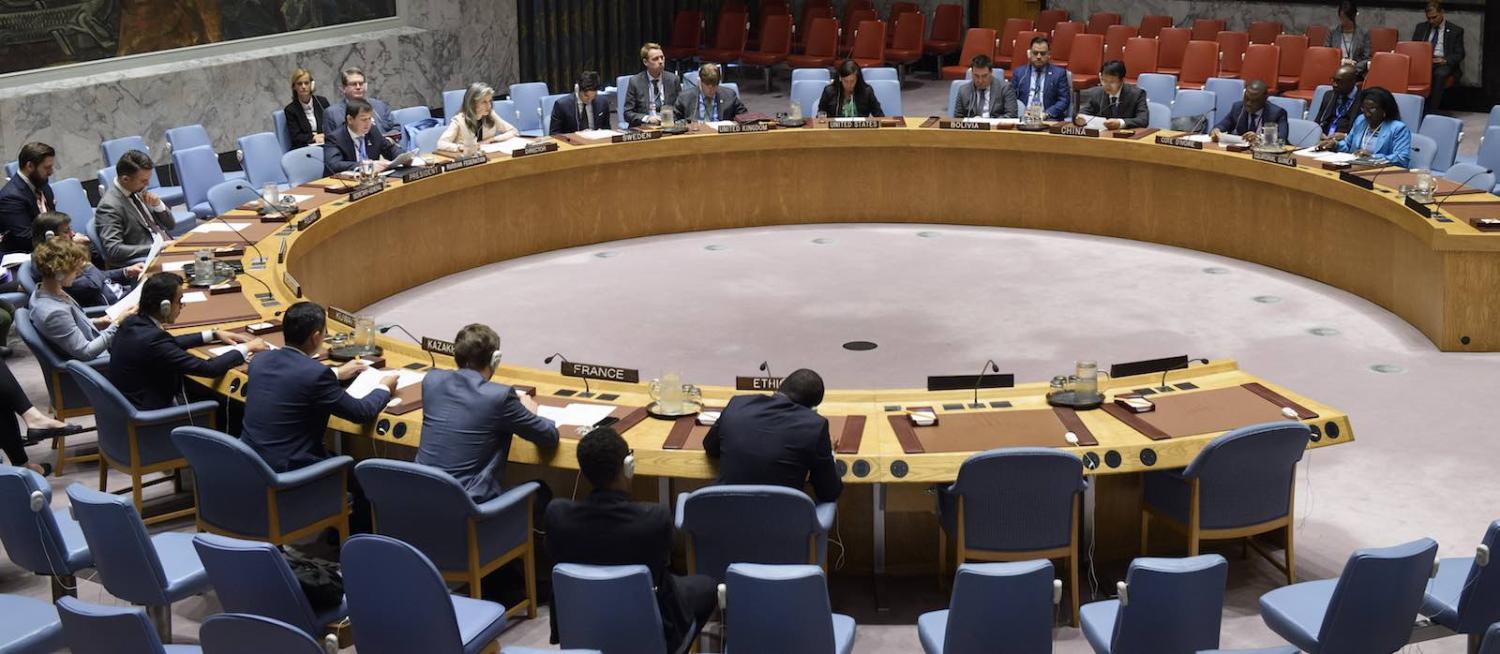Indonesia has successfully won its bid for a non-permanent seat on the United Nations Security Council 2019–20, but what is the country likely to achieve?
There are, of course, significant constraints to what a non-permanent member of the Security Council can do within the UN structure. There is still room for movement, however, and there will be pressure for Indonesia to fulfil the expectations of those who elected them on the basis of its “partner for peace” campaign.
Indonesia outlined its primary aims in seeking a seat as: (1) promoting global peace and stability; (2) working towards a better synergy between international and regional organisations with regards to building peace and stability; (3) sustainable development; and (4) promoting global cooperation on terrorism, radicalism, and extremism.
During its last stint as a non-permanent member of the Security Council in 2007–08, Indonesia was seen as “a moderating voice and consensus builder”, and is expected to take on a similar role this time around. Given that Indonesia’s foreign policy within Association of Southeast Asian Nations (ASEAN) is predicated upon consensus and negotiation, these are natural skills for Indonesia to employ on the international stage.
It is unlikely Indonesia will push for any big changes during its tenure on the Security Council. While some have wondered whether Indonesia will raise the South China Sea issue, this seems exceedingly unlikely pending significant changes to the situation. Indonesia is constrained by its commitment to ASEAN consensus, and unlikely to be willing to mount overt challenges against China.
The best options for Indonesia on the Security Council lie in bolstering its soft power through continuing to be exemplars of peacekeeping (currently ranking 9th out of 121 contributing countries to UN peacekeeping operations), working towards building consensus between non-permanent members on various issues, and drawing attention to regional issues of importance to Indonesia. Winning attention for regional issues proved difficult for Australia during its 2013–14 tenure; hopefully Indonesia will fare better.
I believe there are two key areas where such action would be particularly valuable: the Rohingya crisis, and the rights of migrant workers.
Given the longstanding difficulties of the Rohingya in Myanmar, the crisis will be ongoing come 2019. Even if the repatriation process goes well, Rohingya people remain without citizenship and vulnerable to further outbreaks of violence.
Indonesia is well placed to be a mediator and leader on this issue, and it will be a valuable opportunity for the country to achieve the goal of linking global and regional organisations with regards to peace-building. The Security Council has been accused of being “impotent” on the Rohingya issue, and so it is a key area for Indonesia to flex its strength at consensus building.
The rights of Southeast Asian migrant workers has come to be a key regional issue, yet one which has not garnered a great deal of international attention. The issue became prominent this year following the violent deaths of two migrant domestic workers: Adelina, a 21-year-old Indonesian working in Malaysia; and Joanna Demafelis, a 25-year-old Filipino working in Kuwait. Indonesia, along with the Philippines, is a major advocate for regional reforms.
While progress has been made within ASEAN with the creation of the ASEAN Consensus on Migrant Workers, some observers believe the worst abuses are occurring in countries outside ASEAN. Indonesia’s position as a non-permanent member of the Security Council will provide a vital chance to focus international attention on the issue and work towards advancing synergy between international and regional organisations.
Winning the non-permanent seat is not only a soft-power victory in itself, but also provides an invaluable opportunity for Indonesia to achieve its goals of peace and security, to enhance its reputation, and draw attention to regional issues.

